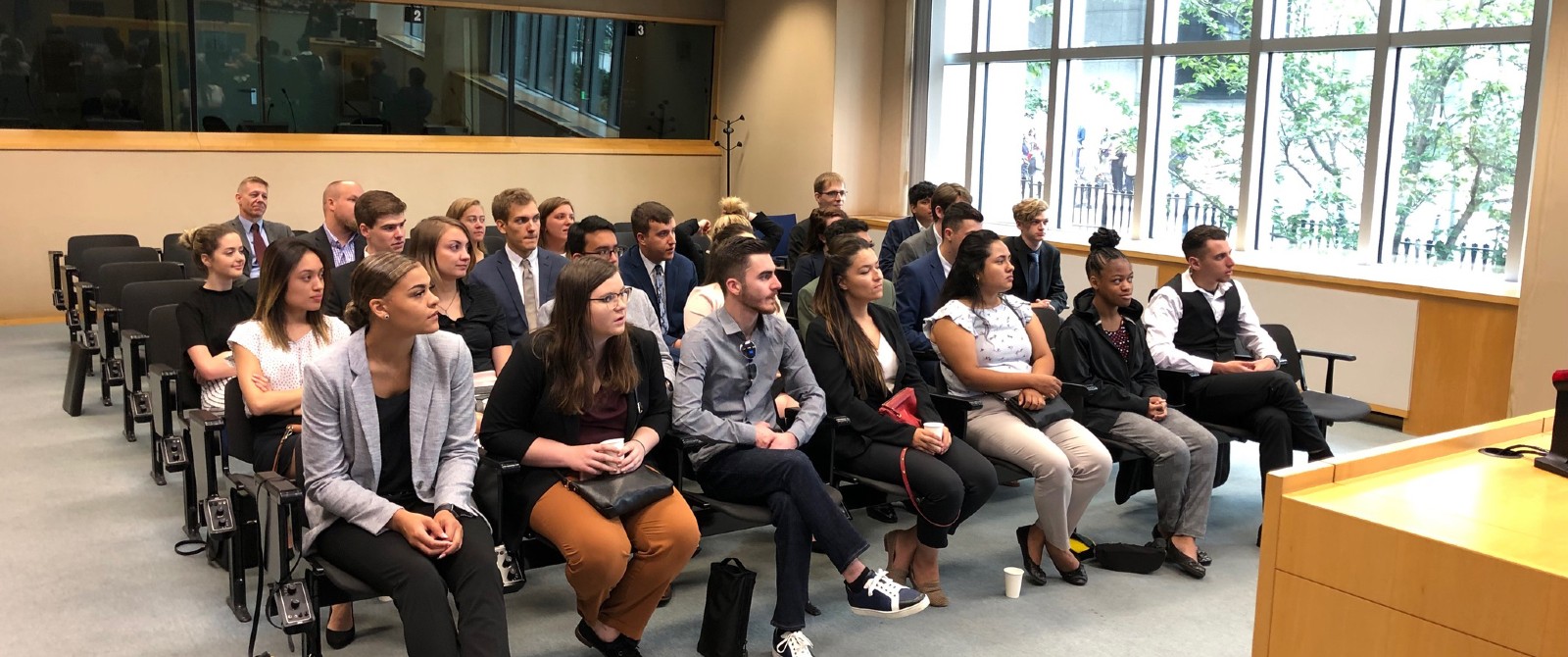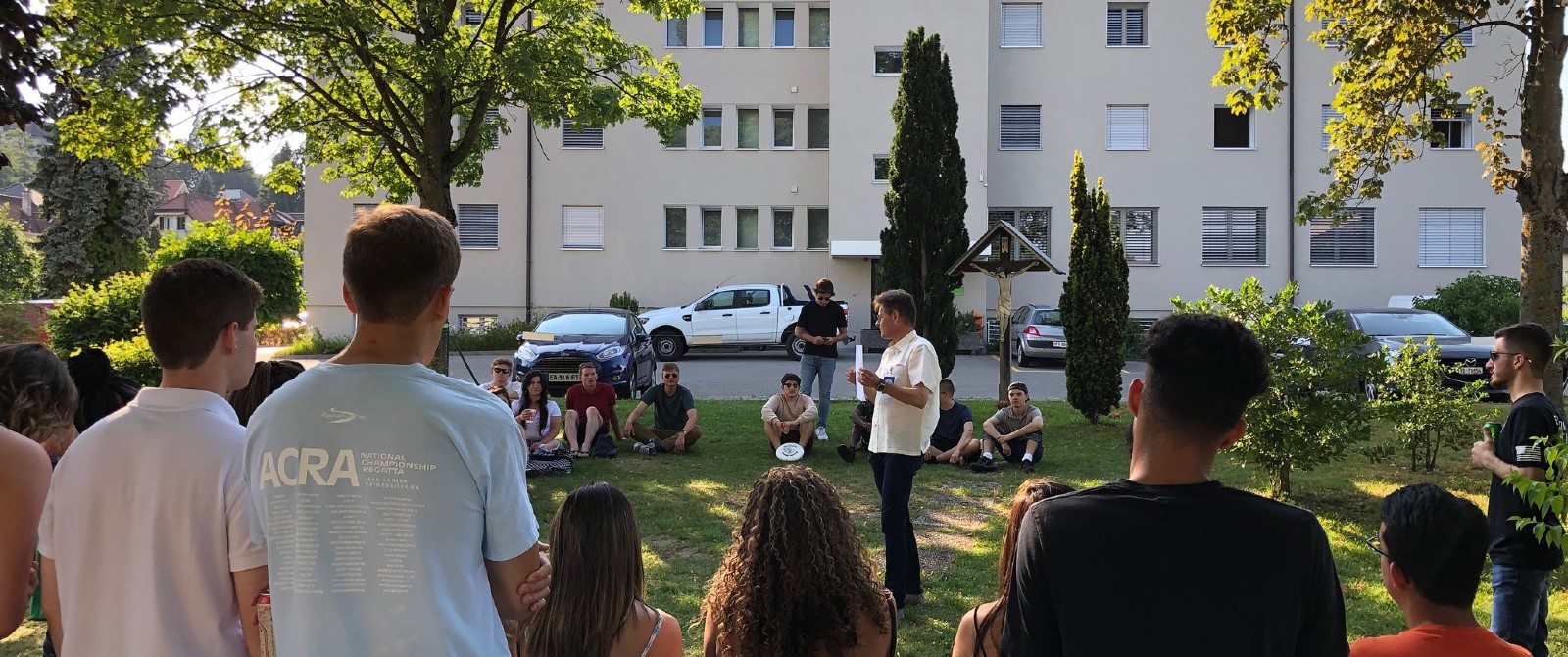International Security Studies Program (ISSP)
Course Information
ISSP: An Overview
Interdisciplinary Focus, Multicultural Tradition, Unforgettable Experience
Successful operation in today’s increasingly interdependent world, in particular in international organizations, requires interdisciplinary thinking. This course, through its interdisciplinary focus and method, provides participants with the intellectual tools necessary to thrive in today’s rapidly globalized environment. The main part of the course takes place in Fribourg, Switzerland – a charming medieval city in the heart of Europe, surrounded by majestic mountains, romantic lakes and nurturing forests. Fribourg is famous for its bilingualism (French and German), its long-standing multicultural and humanistic tradition (allowing the world’s diverse races, religions and cultures to co-exist peacefully), its institutions of higher education and for its delicious fondue. Both the stimulating course as well as the fascinating cultural environment in which it will take place provides the best guarantee for an unforgettable experience.
The ISSP offers students an intellectually stimulating, innovative and diverse program of study in a safe environment, with maximum exposure to the cultural and political life of contemporary Switzerland, Europe and the world of international security affairs.
Academic Information
Earn 12 European Credit Transfer and Accumulation System (ECTS) credits (equivalent to 6 U.S. semester credits at most colleges and universities) while addressing current events and perennial challenges in the realm of international security. This academically rigorous program combines classroom study with experiential learning, ensuring credits are both transferable worldwide.
Students meet directly with diplomats, policy leaders, and security experts during exclusive site visits to institutions such as the United Nations, NATO Headquarters, and the Council of Europe. These behind-the-scenes conversations provide rare insight into how global actors respond to conflict, terrorism, and cooperation—and what skills are essential to shape policy at the highest levels.
The structure of the ISSP revolves around intensive coursework and relevant study visits. Through lectures, guided discussions, and applied exercises, you will learn to analyze current crises, participate in debates and simulations, and build arguments that resonate with decision-makers. The experience culminates in a capstone policy paper that requires you to craft a clear, evidence-based prescription for a pressing global security challenge—giving you a professional portfolio piece for internships, graduate school, or early-career positions.
This program is especially relevant for students in international relations, political science, security studies, and law, but is also well-suited for those in history, economics, or communication who want to connect their studies to real-world practice.
Financial Aid: students should work with their home institution to obtain support.
-
Course Structure
Module I
Pre-Travel Study
Complete assigned readings, essays, hot takes, and other preparatory coursework to build a strong foundation before departure.Module II
In-Country Program
Immersive study abroad in Switzerland, Belgium, and France, combining accredited coursework with site visits, lectures, and cultural experiences. Site visits include NATO Headquarters, the European Parliament, the Council of Europe, Hackenberg Fortress (Maginot Line), and the Swiss Parliament. Evenings and weekends are free for study and independent exploration.Module III
Capstone Policy Paper
Synthesize your learning into a final policy paper, providing a tangible academic product and portfolio piece. -
Admission Requirements
Admission to the ISSP is open to qualified undergraduates or graduate students:
- in good academic standing at a recognized college/university
- fluency in English (both written and oral)
- GPA of 3.0 or equivalent
- valid travel documents (passport).
Submission of all application materials online must be completed by March 15.
Completed application forms should be submitted as early as possible to provide adequate time for consideration. It is in the best interest of the candidate to apply early as places are limited. If your home institution does not happen to be a partner of the ACP, you can find out more about applying through the Fribourg Insitute.
Application Deadline March 15
The ISSP 2026 dates are as follows: June 30 - July 19 2026
Enroll NOW! Admission is restricted to 45 students and will be granted on a first-come basis.
If your home institution does not happen to be a partner of the ACP, you can find out more about applying through the Fribourg Insitute.
Interested? Contact us now!




